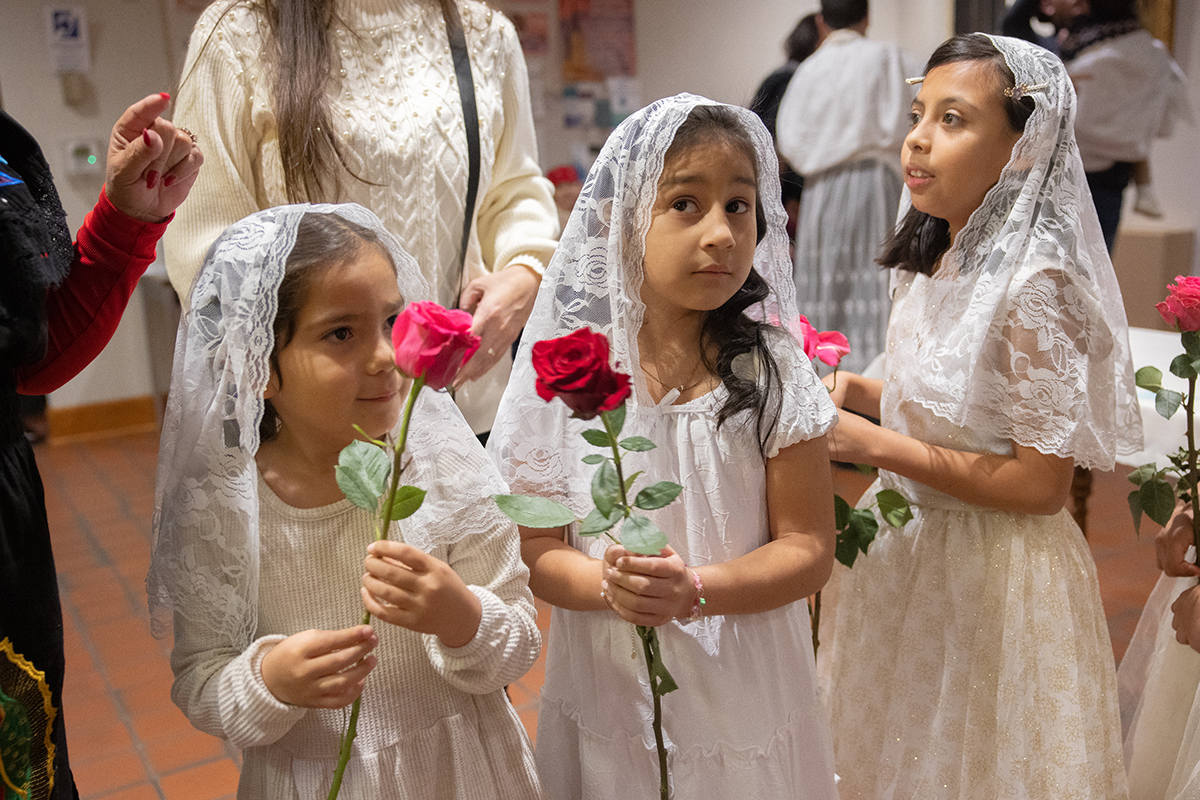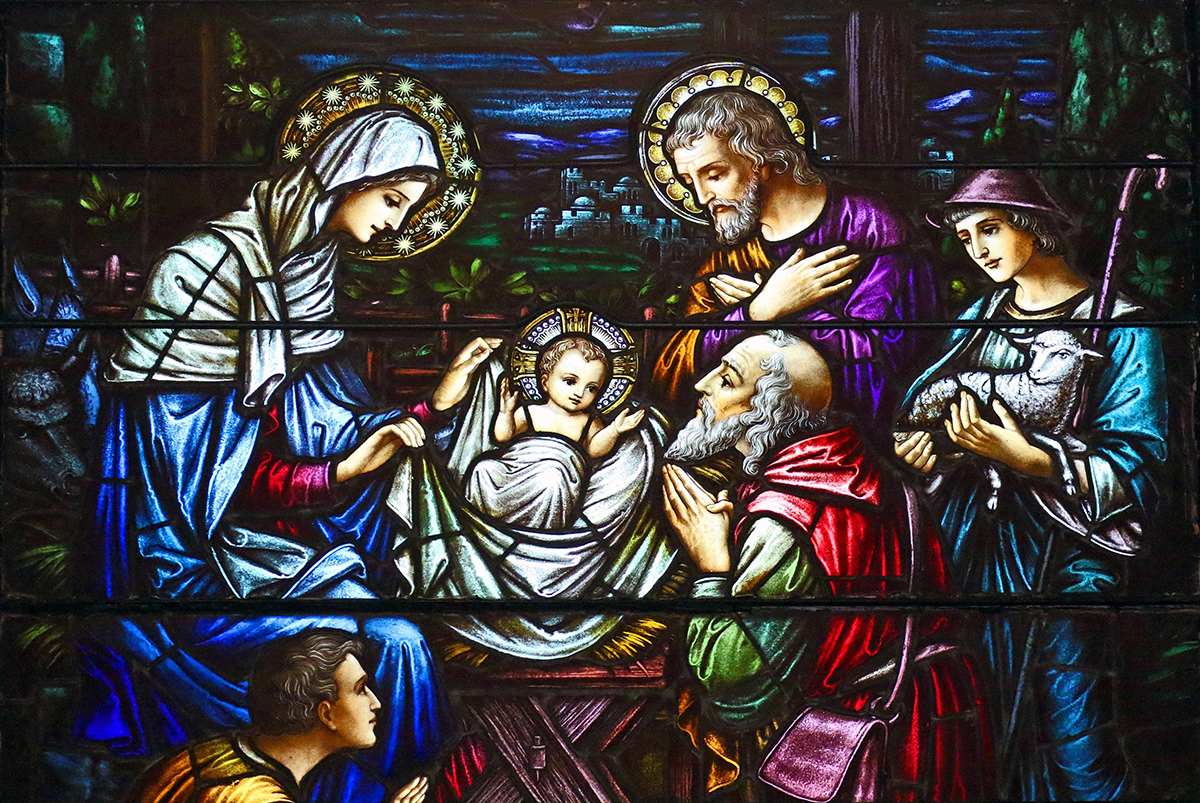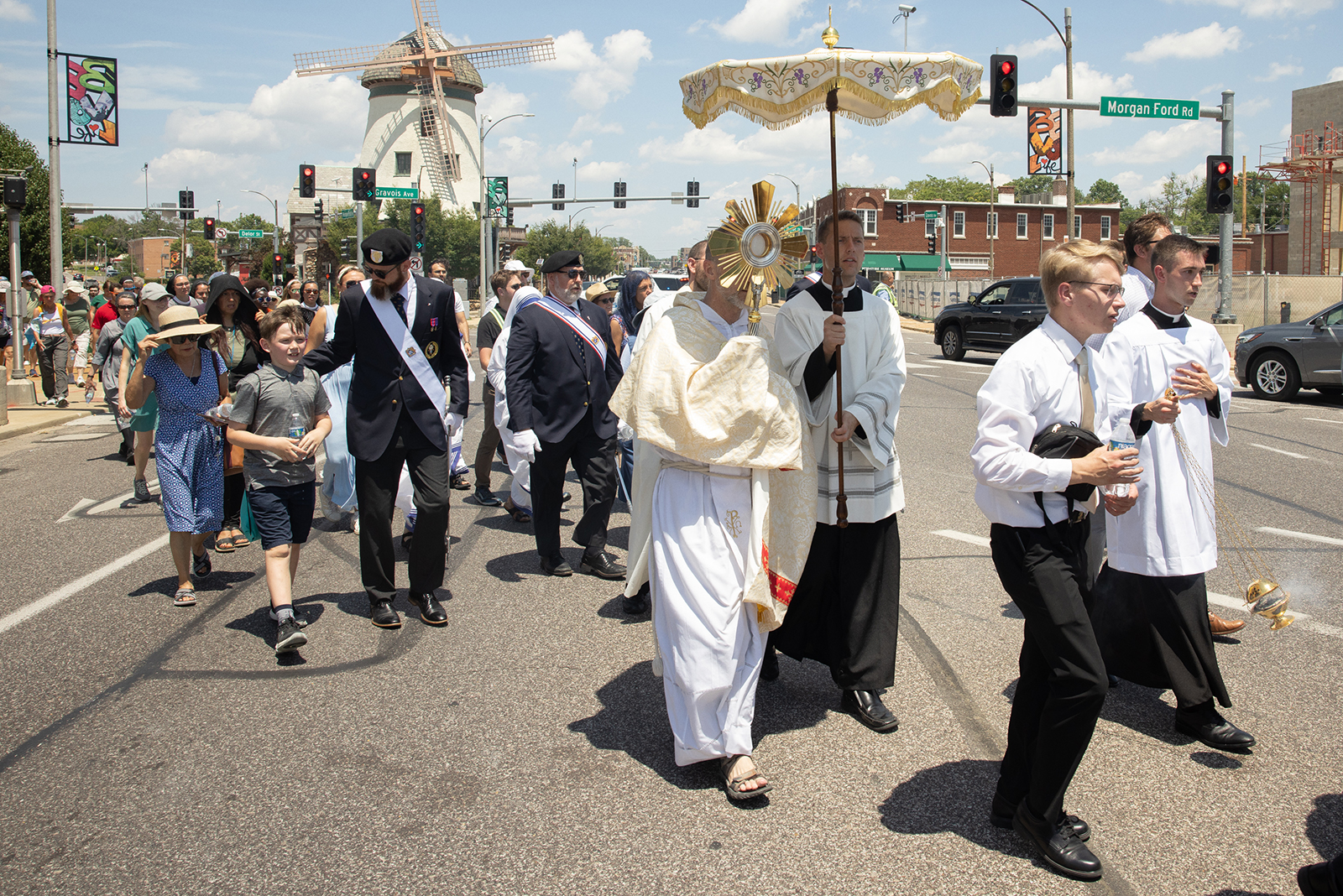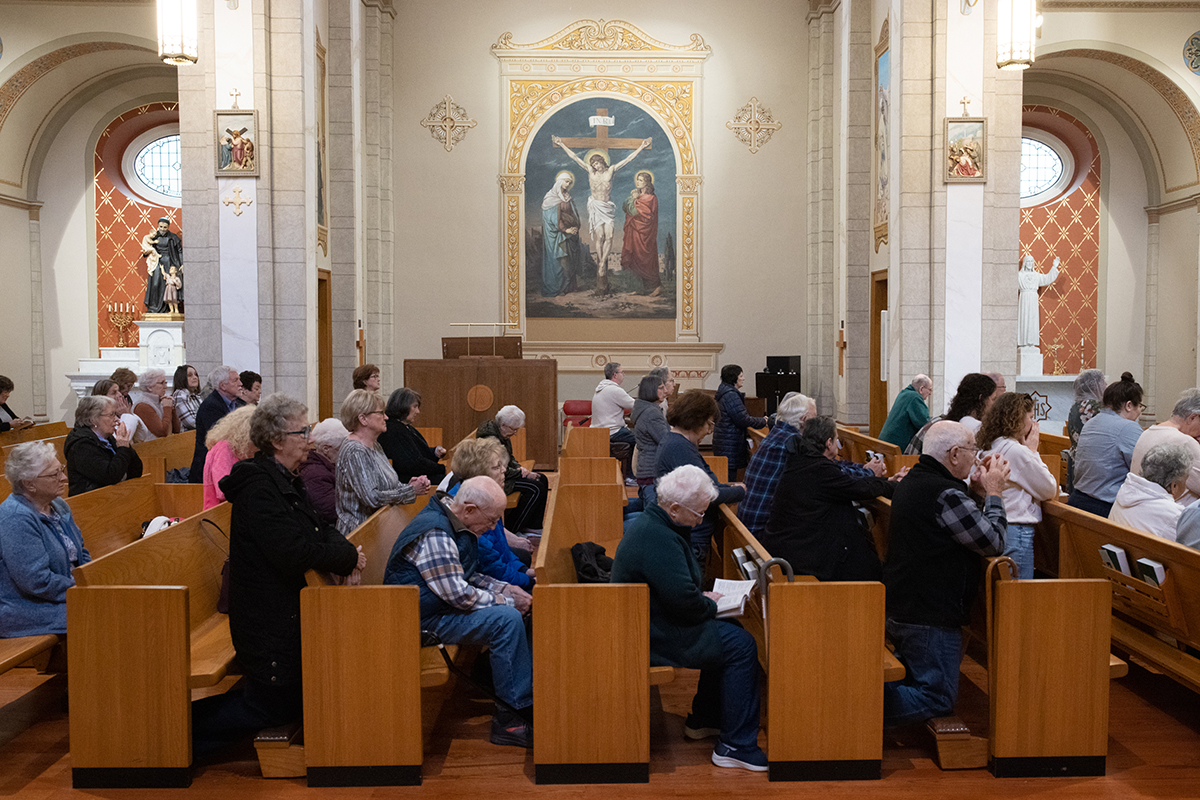Saying ‘no’ in order to say ‘yes’

Men, women at Mary Queen of Peace Parish participate in 90-day programs to help them grow in relationship with the Lord
The first time James Chalmers was asked to dedicate himself to a daily hour of prayer as part of the Exodus 90 program, he leaned on the help of others.
“My first Exodus, I saw it more of as a task,” he said. “I thought, I barely pray for 15 minutes — how am I going to do an hour?”
Prayer started as a sacrifice. Chalmers threw himself into Catholic content from Bishop Robert Barron and Father Mike Schmitz. That first year, he relied on other Catholic voices to kickstart his prayer life.
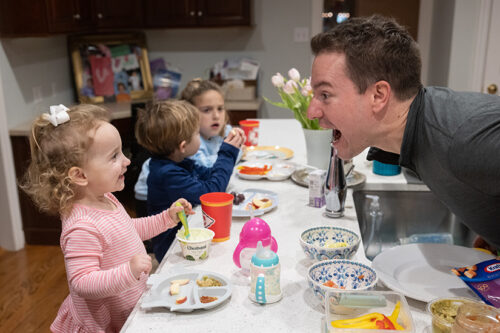
Now in his third year of Exodus 90 at Mary Queen of Peace Parish in Webster Groves, Chalmers has worked through the challenge of developing a prayer life. It’s deepened to the point where now the prayer comes from within.
“I figured out, why can’t I just have an ongoing relationship with Him throughout the day?” he said. “It was a mindset shift of prayer being a task, but now it’s almost like breathing. You just do it.”
Exodus 90 is an intense, 90-day program for men that incorporates sacrifices (known as asceticism), prayer and fraternity through small groups. It typically runs from Jan. 1 through Easter. More than 100,000 men in 75 countries have participated in the program since it began eight years ago.
Participation at Mary Queen of Peace has grown to include more than 120 men this year. The parish also developed a similar program for women called Beloved: The Little Way in 90 Days, which debuted this year. Both programs aim to strengthen men and women in their vocations and help them pursue a deeper faith.
Pastor Father Craig Holway said he’s personally experienced the fruits of Exodus 90, having participated two years ago. “It’s probably the hardest thing I’ve ever done, but it was very rewarding in that it helped me with a few things I needed to get ahold of,” he said. “It led me to a better self-mastery, to be a better man, a better pastor and a better priest.”

The program seeks to influence men toward a living relationship with God, which in turn is modeled in their families, Exodus 90’s founder Jamie Baxter said in a recent interview on the archdiocese’s Go & Make podcast.
“At the foundation, Exodus is about a growth in freedom,” he said. “The reason why freedom is so important is it’s the foundation of love. When we are ‘unfree,’ it’s really hard to give of ourselves fully. It’s hard to lay down our lives for others.”
The sacrifices that are part of the program, he said, create the space in men’s lives to allow God to work there and ultimately to develop a deeper relationship with Him. “What lies before us in our daily life is an opportunity, ultimately, to say no to some of the things that can hold us back in order to say yes to the most important things when God asks of them from us,” Baxter said. “It’s not so much about … building good habits. It’s more like we need to abstain from good things for periods of time in order to be as free as we can be … in order to grow in freedom for greater love.”
Saying ‘no’ in order to say ‘yes’
Exodus 90’s ascetic practices typically are what get the most attention when people learn about the program, Chalmers said. Those include eliminating unnecessary phone and computer use. No TV, alcohol, soda or snacking between meals. Fasting and no meat on Wednesdays and Fridays. Get at least eight hours of sleep a night. And the one that gets a wide-eye reaction: cold showers.
“When I run down the list, people are surprised,” he said. “The Church has always done self-denial so that we’re able to say yes when God asks us to do greater things.”
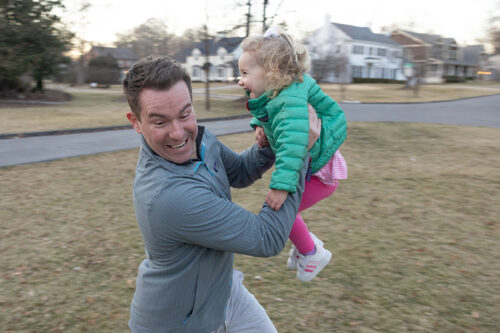
Finding balance is critical, though. Chalmers finds help through prayer and the fraternity found within his small group. “We require asking ‘why’ you’re doing these things in the first place,” he said. “For me, the why is that I am doing it to deepen my relationship with the Lord, but also to be a more present husband and father to my children. If my children want to watch a movie, I’m not going to say, ‘nope, I’m not going to do that.’ But it’s not bingeing Netflix for nine hours.”
The fraternity found in the small groups helps the men to move through the 90 days together. “This is a hard program, and I will let myself down every day,” he said. “But if I am doing it for someone else — like the seven guys next to me — then I won’t let them down. In the 90 days, I see the biggest transformation with our faith.”
Beloved: The Little Way in 90 Days
In January, Mary Queen of Peace debuted a similar program for women called Beloved: The Little Way in 90 Days. The parish’s adult faith formation coordinator, Mary Burke, said the program grew out of a book study group at the parish and includes nearly 70 participants.

Some of the elements are similar to Exodus 90, including prayer and small groups that meet weekly. The women also are prescribed “challenges” — such as no social media and no alcohol — that are meant to deepen their relationship with Christ, Burke said. Participants are encouraged to pray daily using an examen and the daily readings. They are reading “The Way of Trust and Love,” by Father Jacques Philippe, based on a retreat he developed guided by the writings of St. Thérèse of Lisieux.
Katie Basara was part of the original book study and discovered that some of the women’s husbands were participating in Exodus 90. “The resounding sentiment is that we felt a little alone in that journey, especially when we witnessed the fraternal brotherhood that was happening,” she said. “These men were finding connections through their spiritual life.”
Basara had been attending daily Mass before Beloved 90, but through challenging herself, she now goes more frequently. “I find I am running to daily Mass, and if I can’t do that, I feel my day is not centered,” she said. “I am not making it necessarily every day, but for the first time, if I can’t make it to my parish, I am finding another parish to go to.”
Burke said that connecting with other women of different ages and vocations has also been a blessing. “They’re meeting other women of faith and breaking beyond boundaries, and that’s been an enriching experience,” she said.
Ninety days is a long commitment, but hopefully, along the way, they’re developing positive habits that allow them to grow deeper in their relationship with the Lord, Burke said.
“We tend to want to make things easier on ourselves, but I think people want the challenge,” she said. “We’re raising the bar and seeing people step up and say I want the challenge — and that’s been amazing.”
Fasting for Lent
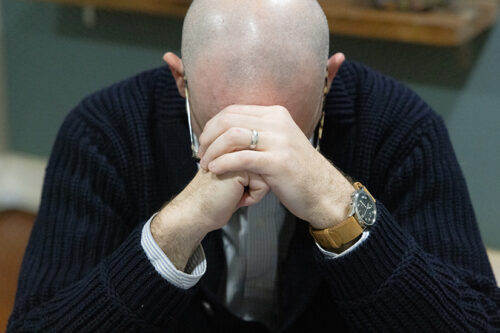
This is the second in a three-part series on the Lenten aspects of prayer, fasting and almsgiving. Exodus 90 offers a specific list of ascetic practices, or acts of self-denial. Through these elements of fasting, participants are able to say “no” to lesser things so that they can make room and say “yes” to what God is asking of us.
While this list is meant to be a helpful guide, participants are asked to discern their intention and always follow God’s will. Focus on the “why” you are choosing certain acts of self-denial, rather than the “what” you’re choosing to do. Exodus 90 stresses that “each does what he can, nor is he praised who has done much, nor is he blamed who has done less” (Egeria’s Travels, c. 380 AD).
• Make a Holy Hour each day
• Make a morning offering
• Make a nightly examen
• Get enough sleep (at least eight hours is recommended)
• Take cold showers
• Avoid unnecessary smartphone use
• Avoid unnecessary computer use
• Give up video games
• Give up TV and televised sports
• Give up alcohol
• No soda or sweet drinks
• No snacking between meals
• No desserts or sweets
• Listen only to music that lifts the soul to God
• No unnecessary purchases
• Check in with your anchor (an accountability partner)
• Fast on Wednesday and Friday (only eat one full meal, as well as two smaller meals that together are not equal to a full meal)
• No meat on Wednesday and Friday
• Exercise three times per week
• Celebrate the Lord’s Day (attend Mass)
Additional information on Exodus 90: exodus90.com

The first time James Chalmers was asked to dedicate himself to a daily hour of prayer as part of the Exodus 90 program, he leaned on the help of others. “My first … Saying ‘no’ in order to say ‘yes’
Subscribe to Read All St. Louis Review Stories
All readers receive 5 stories to read free per month. After that, readers will need to be logged in.
If you are currently receive the St. Louis Review at your home or office, please send your name and address (and subscriber id if you know it) to subscriptions@stlouisreview.com to get your login information.
If you are not currently a subscriber to the St. Louis Review, please contact subscriptions@stlouisreview.com for information on how to subscribe.

